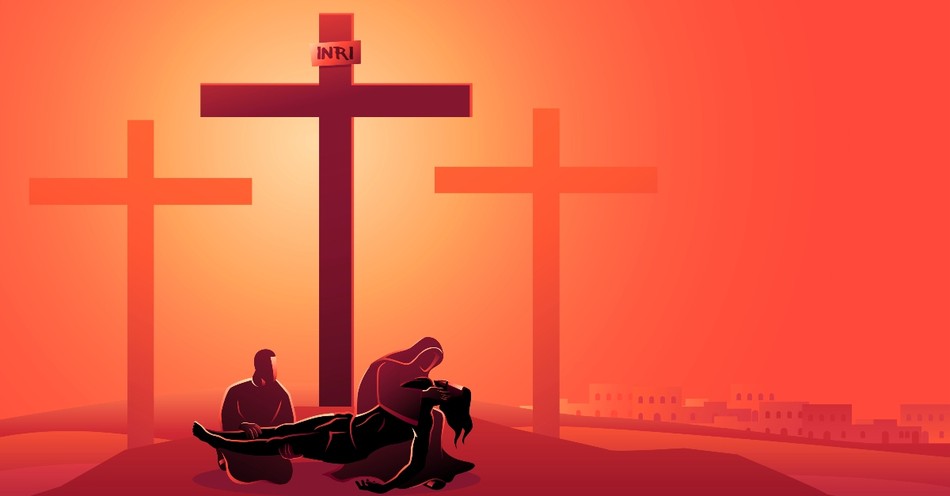We can often hate our bodies for various reasons, as is our human nature. But no one hated the concept of the body more than a number of heresies that cropped up during the time of the early church, such as Gnosticism, Apollinarianism, and Docetism. We’ll cover the latter in today’s article.
Docetism stems from the idea that Jesus only “appeared” as a human, but in reality, he was fully divine and only gave the illusion that he had a body. Essentially, a ghost.
We’ll dive into the massive problems with the idea that Jesus didn’t have a physical body and the verses that also disprove it. Along with this, we’ll see if we can spot any modern-day Docetism creeping into our culture, and why this ultimately matters to us.
Why Doesn’t Docetism Work?
This falls under the category of heresy for a number of reasons. First, if Jesus didn’t have a physical body, then his death and resurrection mean absolutely nothing. If Jesus had no physical body, then why should we marvel at all that he rose from the dead three days later or endured the horrible suffering and crucifixion?
In essence, this heresy attacks two of the most foundational concepts of the Christian faith.
Also, Docetism doesn’t work because we have plenty of scriptural evidence that Jesus had a physical body. He even goes as far as to show the disciples, after his resurrection, that he has a body by allowing them to feel the puncture wounds in his wrists and in his side, specifically to combat the idea that he was appearing to them as an apparition.
Then he said to Thomas, “Put your finger here; see my hands. Reach out your hand and put it into my side. Stop doubting and believe” (John 20:27).
Jesus also eats food, something a ghost cannot do. He also gets exhausted, which wouldn’t make sense for someone with a fake body to do, and on the cross, he proclaims his thirst.
Later, knowing that everything had now been finished, and so that Scripture would be fulfilled, Jesus said, “I am thirsty” (John 19:28).
Docetism doesn’t work because Jesus needed a physical body to make the most important miracle the world has ever seen matter. He could not be fully human and fully divine without a fully human body.
He could not be tempted in the same way we are tempted without a body. He could not fully understand the human experience without a human body.
Therefore, Docetism needs to go out the window.
Do We See Docetism Now?
At first glance, the idea of Docetism seems ludicrous at best. Why would someone try to say that Jesus didn’t have a body, and how in the world did the early church wrestle with this heresy for so many years, when Jesus clearly got hungry, thirsty, and tired?
But Docetism, albeit an old heresy, can creep into modern Christianity in a number of ways.
Sometimes this appears when believers place too heavy of an importance on the spiritual side of calling and neglect the physical. This can cloud our judgment when it comes to decision making or being present with those around us on earth.
Furthermore, hints of Docetism in Christianity now can also cause Christians to distort Scripture based on how they feel the spirit leading them to interpret the passage at that moment. As stated, we ignore the human element.
Granted, we see other heresies that have a stronger grip on Christianity now, but we do need to value the fully human and fully divine parts of Jesus. If we overemphasize one, we run the risk of succumbing to ideas of older heresies such as this.
After all, we will experience the resurrection of the body and the soul (2 Corinthians 5). Scripture doesn’t toss in this detail haphazardly. God created us to be beautifully and wonderfully made (Psalm 139:14). Heresies such as Docetism and Gnosticism like to downplay this at best and turn this into an evil thing at worst.
Why Does This Matter?
History has a funny way of repeating itself, and even though councils throughout church history have called out heresies, mutations of these false views of the gospel like to resurrect themselves.
As Christians, we need to learn as much church history as we can and truly understand the gospel. Otherwise, we may find ourselves falling prey to heresies that have persisted for centuries.
We also need to understand the value of a body. Jesus had a human body. This is central to the gospel. Otherwise, his death and resurrection have no meaning.
Photo Credit: © iStock/Getty Images Plus/rudall30
Hope Bolinger is an acquisitions editor at End Game Press, book editor for hire, and the author of almost 30 books. More than 1500 of her works have been featured in various publications. Check out her books at hopebolinger.com for clean books in most genres, great for adults and kids. Check out her editing profile at Reedsy.com to find out about hiring her for your next book project.



